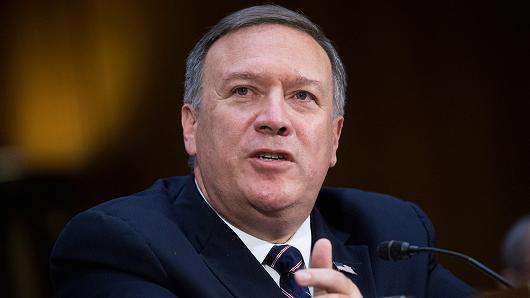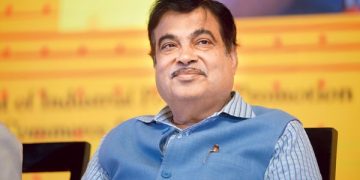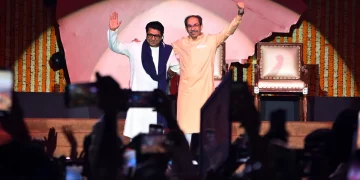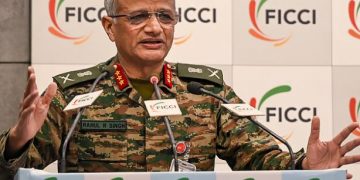Brussels, April 27: Less than 24 hours after assuming his post, US Secretary of State Mike Pompeo plunged Friday into NATO diplomacy as the allies sought to toughen their response to Russian interference on its periphery and elsewhere.
On his first overseas trip as America’s top diplomat, Pompeo hit the ground running with a series of meetings at NATO headquarters in Brussels aimed at underscoring the alliance’s relevance in a crisis-filled global environment that includes persistent or worsening conflicts in Afghanistan, Iraq, Syria and Ukraine.
“The work that’s being done here today is invaluable and our objectives are important and this mission means a lot to the United States of America,” Pompeo told NATO Secretary General Jens Stoltenberg. “The president very much wanted me to get here and I’m glad we were able to make it, and I look forward to a productive visit here today.”
Pompeo’s aim is to ensure that NATO maintains a unified position of “no business as usual” with Russia until it implements an agreement to end violence in eastern Ukraine and halts destabilising actions for which it is blamed elsewhere, according to a senior US official.
Those include the poisoning of an ex-Russian spy in Britain last month, support for Syrian President Bashar Assad’s government that is accused on launching a chemical weapons attack that led three NATO members – Britain, France and the US – to launch airstrikes on Syrian targets.
At a breakfast meeting focused on the Russia, NATO foreign ministers agreed on “the scale of Russian aggression” and that it “requires a response,” according to the US official, who was not authorized to discuss the closed-door meeting publicly and spoke on condition of anonymity.
Friday’s meetings will set the stage for a summit of NATO leaders in July at which they are expected to outline more specifics about the response to Russia.
Another of Pompeo’s objectives in Brussels is to prod allies, particularly Germany, to meet their commitments to spend 2 percent of their gross domestic product on defense by 2024, according to the official.
That commitment was made in 2014 and thus far only six of the 28 countries who made the pledge meet the goal. Nine have produced realistic plans for reaching it by 2024, but the rest, including Germany, have not.
That spending level, frequently incorrectly referred to by US President Donald Trump as a contribution to NATO itself, is particularly important given the allies’ need to combat increased Russian aggression, according to the official.
The official said the US delegation would make the point that NATO is more relevant today that at any point since the end of the Cold War.
Associated Press






































